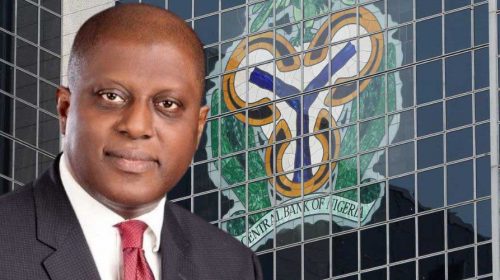Media Charged On Accurate, Respectful Reporting Of Issues Affecting Albinism Community

Media representatives at the One-Day Interactive Meeting with Media Organized by the Albinism Association of Nigeria have been urged to ensure accurate and respectful reporting on issues affecting the albinism community.
The call was made in Communiqué issued at the end of the event.
Read the full communique.
Communiqué of the One-Day Interactive Meeting with Media Organized by the Albinism Association of Nigeria
Date: Tuesday, September 17
Venue: Elomaz Hotel, Maryland
Theme: Interactive Meeting with Media Organized by the Albinism Association of Nigeria.
The Albinism Association of Nigeria (AAN) successfully held a one-day interactive meeting with the media aimed at promoting awareness, addressing misconceptions, and fostering advocacy for the rights and welfare of persons with albinism in Nigeria and to amplify the provisions of the National Albinism Policy. The meeting brought together media professionals, civil society groups, health practitioners, and stakeholders committed to supporting the albinism community.
Key Objectives of the Meeting:
1. To amplify non-implementation of the National Policy on Albinism in Nigeria
2. To engage media personnel in addressing the stigma and challenges faced by persons with albinism.
3. To promote accurate representation of albinism in the media.
4. To discuss strategies for advocacy and public sensitization on the rights of persons with albinism.
5. To foster partnerships between the media and AAN for continuous awareness and education.
Highlights of the Meeting:
1. Welcome Address by the AAN Lagos State Chairman, Mr Omotolani Ojuri. He appreciated the support of Disability Rights Funds (DRF) for their unwavering commitment to advancing the rights of persons with disabilities, including those with albinism.
He said AAN was working towards promoting the rights, welfare, and empowerment of individuals with albinism in Nigeria
“We believe that by working together with the media, we can create a more inclusive and supportive society for all individuals with albinism; and may I at this point express out deepest gratitude for your interest in out organisation and the importance of the work you do.”
“This is an opportunity to build a united front to tackle misinformation, discrimination, and stigmatisation faced by persons with albinism in Nigeria. We aim to provide a comprehensive understanding of the provisions of the National Albinism Policy and its significance for the protection and inclusion of persons with albinism. We strongly believe that the media will help to play a crucial role in raising awareness about albinism and promoting a more inclusive society.”
2. The President of the Albinism Association of Nigeria, who doubles as its Executve Director, Mrs Bisi Bamishe acknowledged the critical role of the media in shaping public perception and dispelling myths about albinism.
She emphasized the need for accurate reporting and sustained advocacy to improve the quality of life for persons with albinism and that the National Albinism Policy represents a milestone in the organisation efforts to ensure that persons with albinism in Nigeria are recognised, respected, and supported by the society and the three tiers of government.
“The National Policy on Albinism is a comprehensive framework designed to address the unique challenges faced by persons with albinism in Nigeria. The policy aims to promote social inclusion, economic empowerment, and access to education and healthcare for individuals with albinism. It was drafted in 2019 with plans to be implemented within five years. So, it was expected that its implementation would be completed by December 2024 Unfortunately, it has not seen the light of the day.”
“Since it has not been implemented as intended up till now, persons with albinism are suffering and it seems there is no hope even though a national policy supporting our course of living was initiated. Hence, the need to ensure review and implementation is necessary because of the prevailing negative circumstances faced by PWAs,” she said.
The Role of Media
Media representatives at the session were urged to ensure accurate and respectful reporting on issues affecting the albinism community especially on the National Albinism Policy. Other areas include combating myths and stigma and promoting positive representation.
The importance of featuring success stories and achievements of persons with albinism was underscored.
Interactive Sessions
The interactive sessions allowed participants to exchange ideas, share experiences, and propose actionable solutions. Key suggestions included:
1. Strengthening media campaigns to educate the public about albinism.
2. Partnering with media houses to run awareness programs and documentaries.
3. Engaging policymakers through the media to enact laws that protect the rights of persons with albinism.
Resolutions:
The meeting concluded with the following resolutions:
1. Media from local, traditional, or new media to spotlight issues around the National Albinism Policy.
2. Media houses should adopt ethical reporting standards when covering albinism-related issues. This also extended to social media.
2. Continuous collaboration between AAN and media outlets to drive sustained awareness and advocacy efforts.
Final Words:
The Albinism Association of Nigeria remains dedicated to empowering persons with albinism and will continue its advocacy efforts through strategic partnerships with the media and other stakeholders.
Signed:
Bisi Bamishe
Executive Director, Albinism Association of Nigeria







Leave a Reply